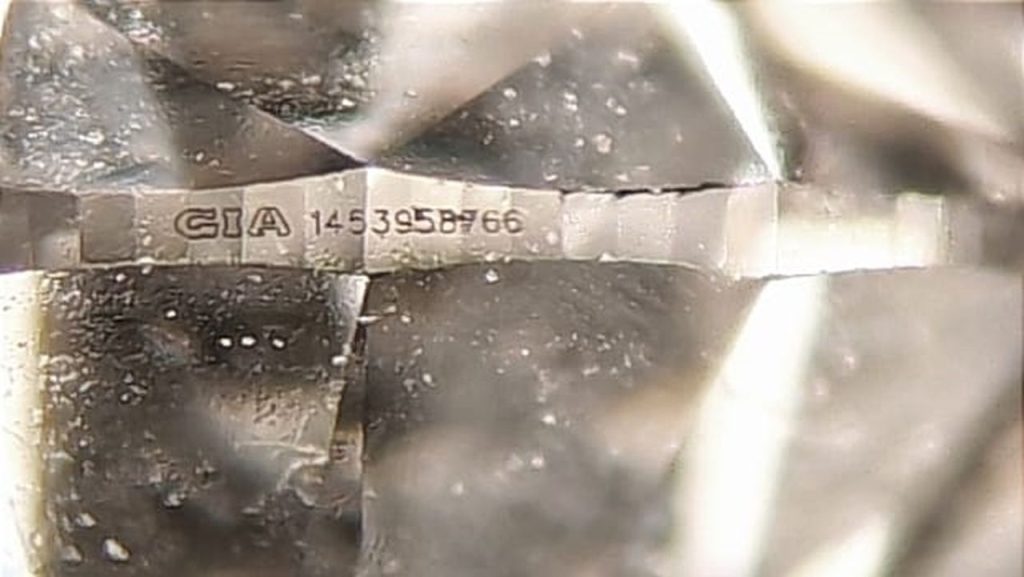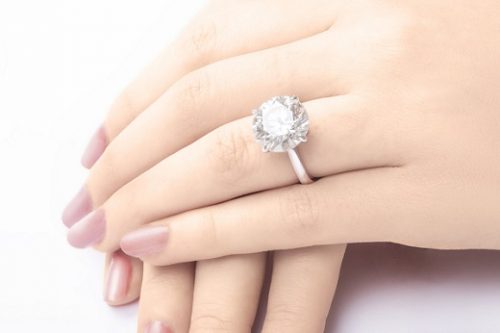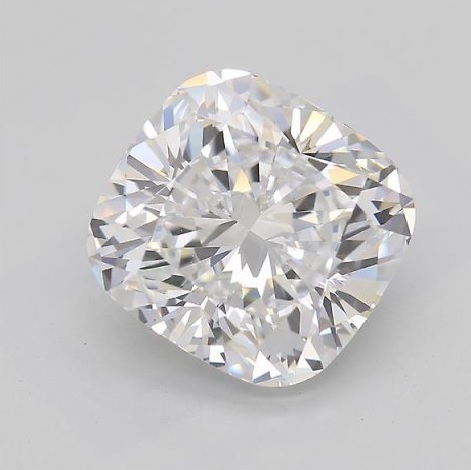A synthetic diamond (also known as a lab-grown diamond, man-made diamond, or cultured diamond) is a diamond that is created through artificial processes in a laboratory rather than being formed naturally over millions or billions of years in the Earth’s crust. Despite their man-made origins, synthetic diamonds have the same chemical composition, physical properties, and optical characteristics as natural diamonds, making them a true diamond in every sense. However, the main difference is that they are created in a controlled environment in a much shorter time frame, often just a few days or weeks.
How Synthetic Diamonds Are Made:
There are two primary methods used to produce synthetic diamonds:
High Pressure High Temperature (HPHT): The HPHT method simulates the intense pressure and temperature conditions that occur deep within the Earth, where natural diamonds form. In this process, carbon is subjected to pressures of around 1.5 million psi and temperatures of 1,500°C (2,732°F). The carbon is then placed in a chamber with a metal catalyst, which helps the carbon crystallise into diamond. The HPHT method is often used for producing gem-quality diamonds and is also used to create diamonds for industrial purposes.
Chemical Vapor Deposition (CVD): The CVD method involves using gaseous hydrocarbons (like methane) to create a plasma (an ionised gas) that breaks the bonds of the molecules in the gas, allowing the carbon atoms to slowly deposit layer by layer on a substrate (a small diamond seed). Over time, the carbon atoms arrange themselves into the crystal structure of a diamond. This process is carried out in a vacuum chamber at lower pressures and temperatures compared to HPHT. CVD diamonds can be grown to large sizes and are often used for high-quality gem diamonds as well as industrial applications.
Properties of Synthetic Diamonds:
Chemical Composition: Synthetic diamonds are composed of the same material as natural diamonds: pure carbon. The atoms of carbon are arranged in a specific crystal lattice structure, which gives diamonds their famous hardness and brilliance. Synthetic diamonds are made from high-purity carbon and undergo similar processes of crystallisation, resulting in diamonds with the same chemical bonds and rigid lattice structure as natural diamonds.
Hardness: Synthetic diamonds are just as hard as natural diamonds. They score 10 on the Mohs scale of hardness, the highest possible rating. This makes them incredibly durable and resistant to scratches, just like their natural counterparts.
Appearance: Lab-grown diamonds have the same optical properties as natural diamonds, including their brilliance, fire, and scintillation. This means they will sparkle and shine in the same way when exposed to light. Since they are chemically identical to natural diamonds, their appearance is indistinguishable to the naked eye. Advanced gemological testing is often required to differentiate between natural and synthetic diamonds.
Cost: One of the biggest differences between synthetic diamonds and natural diamonds is their price. Due to the shorter production time and technological advancements in the manufacturing process, synthetic diamonds typically cost significantly less than natural diamonds of the same size and quality. This price difference makes synthetic diamonds an attractive option for those seeking a diamond at a more affordable price point.
Environmental and Ethical Considerations:
Environmental Impact: Synthetic diamonds have a much lower environmental impact compared to natural diamonds. The mining of natural diamonds can be destructive to the environment, involving large-scale operations that disturb ecosystems and generate waste. In contrast, lab-grown diamonds have a much smaller carbon footprint, as they do not require the large-scale excavation of land or the energy-intensive processes associated with diamond mining.
Ethical Sourcing: Synthetic diamonds also offer a more ethical alternative to natural diamonds. The diamond mining industry has faced criticism over the years for issues related to human rights violations, including child labour and exploitation in conflict zones, known as “blood diamonds”. Synthetic diamonds, however, are produced in controlled laboratory settings where workers are paid fairly and the production process is transparent, making them a more ethical choice for those concerned with the origins of their jewellery.
Types of Synthetic Diamonds:
Gem-Quality Synthetic Diamonds: These diamonds are created for use in fine jewellery and have the same quality and appearance as natural diamonds. They can be cut into various shapes, including round, princess, emerald, oval, and more. Gem-quality synthetic diamonds are graded using the same criteria as natural diamonds, such as carat weight, colour, clarity, and cut.
Industrial Synthetic Diamonds: These diamonds are typically smaller, lower-quality diamonds that are used for industrial applications, such as cutting, grinding, and drilling. Industrial synthetic diamonds are produced in larger quantities and are not necessarily intended for use in jewellery. They are valued primarily for their hardness and durability, which makes them ideal for heavy-duty tools and machinery.
Distinguishing Between Synthetic and Natural Diamonds:
While synthetic diamonds are physically identical to natural diamonds, they can still be differentiated using advanced technology:
Inclusions: Synthetic diamonds may contain inclusions that are different from those found in natural diamonds. For example, synthetic diamonds grown using the CVD process often have distinctive inclusions, such as gas bubbles or metallic inclusions, which can be detected by a gemologist.
Growth Patterns: Under microscopic examination, the growth patterns of synthetic diamonds can be identified. HPHT diamonds, for instance, may display distinctive growth patterns in their crystal structure.
Spectroscopic Testing: Laboratory tests, such as infrared spectroscopy or ultraviolet-visible spectroscopy, can be used to determine whether a diamond is synthetic or natural.
Synthetic diamonds offer a cost-effective, ethical, and environmentally friendly alternative to natural diamonds. Created using advanced technology in a laboratory, these diamonds possess the same chemical structure and visual properties as their natural counterparts. Whether for fine jewellery or industrial uses, synthetic diamonds provide an option that caters to a growing market of consumers looking for diamonds at a lower price point, while still enjoying the beauty and durability of this remarkable gemstone.



